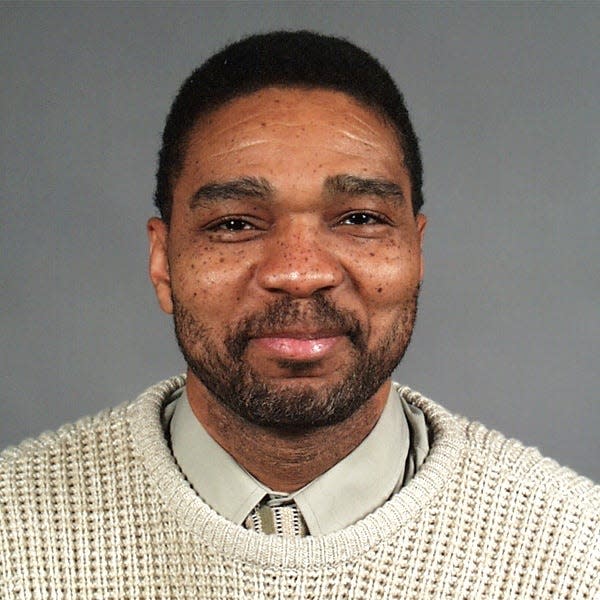Winston W. Wiley: Worcester, like Massachusetts, steps up with progressive voting on Election Day
- Oops!Something went wrong.Please try again later.

The first state in the nation to abolish slavery outright, the first after Reconstruction to elect a Black man to the U.S. Senate, and the first to legalize same-sex marriage, Massachusetts and its residents have reason to be proud when it comes to leading the nation’s social evolution.
And while the face of the state’s legacy of benevolence has been marred from time to time by warts of intolerance, bigotry and racism, overall Bay State residents generally have supported progressive principles.
Residents have voted almost exclusively democratic in presidential elections since 1928, and when it came to disgraced President Richard M. Nixon, this was the only state in the nation that could have boasted, “Don’t blame us, we voted for George McGovern.”
Massachusetts voters showed flashes of that independent streak on Nov. 2, when Boston chose Michelle Wu as that city’s first elected female and first Asian American mayor.
Worcester elevated its first Southeast Asian American and Muslim American candidates to the City Council. Vietnam-born Thu Nguyen will also be the first nonbinary person to serve on the council, and their capture of an at-large seat, along with Albania native Etel Haxhiaj, will make the incoming City Council the most diverse in the city’s history.
Nguyen, 30, immigrated to the U.S. with their family as refugees. As a nonbinary person, Nguyen does not identify exclusively as male or female and uses the pronouns their, they and them. Nguyen grew up in Main South and went to public schools in the neighborhood. A Clark University graduate, Nguyen is now director of projects at the Southeast Asian Coalition. Nguyen’s positions and priorities for the council come from Nguyen's background as a community organizer.
Haxhiaj, 41, came to Worcester in 2001 with her parents after fleeing political upheaval in Albania. She completed undergraduate and graduate studies at Clark University and is director of public education and advocacy at the Central Mass. Housing Alliance. A single mother, she’s active with Mothers Out Front, the Zero Fare WRTA Coalition, the YWCA and the city’s Community Development Block Grant Committee.
Haxhiaj and Nguyen will join incumbents Councilor-at-Large Khrystian King, District 1 Councilor Sean Rose and District 4 Councilor Sarai Rivera in filling five of the board’s 11 seats with racial or ethnic minorities. Haxhiaj will also bring to five the number of women on the council.
School Committee more diverse
The Worcester School Committee is going from no members of color to two, Jermoh V. Kamara and Jermaine Johnson, the board’s first ever African American male.
Kamara, immigrated at age 11 with her family from war-torn Liberia. She attended Providence College and has studied public health. She is an adjunct professor at WPI, director of wellness and health equity at the YWCA, and has worked in Ghana and the Dominican Republic and studied in India.
Johnson, a lifelong Worcester resident, has spent his career working with young people and their families. He has been a resident counselor for at-risk youth for the state Department of Youth Services and a social worker for the state Department of Children and Families.
Two African American females — Shirley A. Wright and the late Ogretta V. McNeil — and a Latina — Hilda Ramirez — previously served on the board, though none at the same time. Five of the six board members, not including the mayor who is chairman, will be female.
Worcester is a dynamic city on the move and each of the new public servants brings distinct backgrounds and fresh perspectives that can positively contribute to that forward momentum. The shakeup of the School Committee comes at a time when the district will also be replacing its superintendent and state lawmakers are exploring policy changes aimed at increasing teacher diversity in the public schools.
Important milestones
These milestones are encouraging and they say a lot about where we stand as a society at this stage in our social evolution. They represent an historical marker of our collective growth as a human family, much the way the state’s hallmark achievement of abolishing slavery in 1783 provides a snapshot of prevailing sentiment of that era.
These local voting patterns mirror an ongoing national trend that has been unfolding for some time and accelerated with the country’s reckoning of racial injustice and inequality triggered by George Floyd’s death at the hands of Minneapolis Police Officer Derek Chauvin in 2020.
The current Congress is the most diverse in the body’s history, with 124 of the lawmakers identifying as Black, Hispanic, Asian/Pacific Islander or Native American, according to a Pew Research Center analysis. The numbers represent almost one-quarter of the sitting members.
At the same time, the forces of resistance have become louder and more determined. But voters can’t let up because, to paraphrase Nguyen, “In any democracy we need perspective. We need people from different walks of life, because if not we’re just replicating the status quo…”
Winston W. Wiley is a former news editor for the Telegram & Gazette. His column appears biweekly in the Sunday Telegram. Contact him at winstonwwiley.telegram@gmail.com
This article originally appeared on Telegram & Gazette: Winston W. Wiley: Worcester, like Massachusetts, steps up with progressive voting on Election Day
